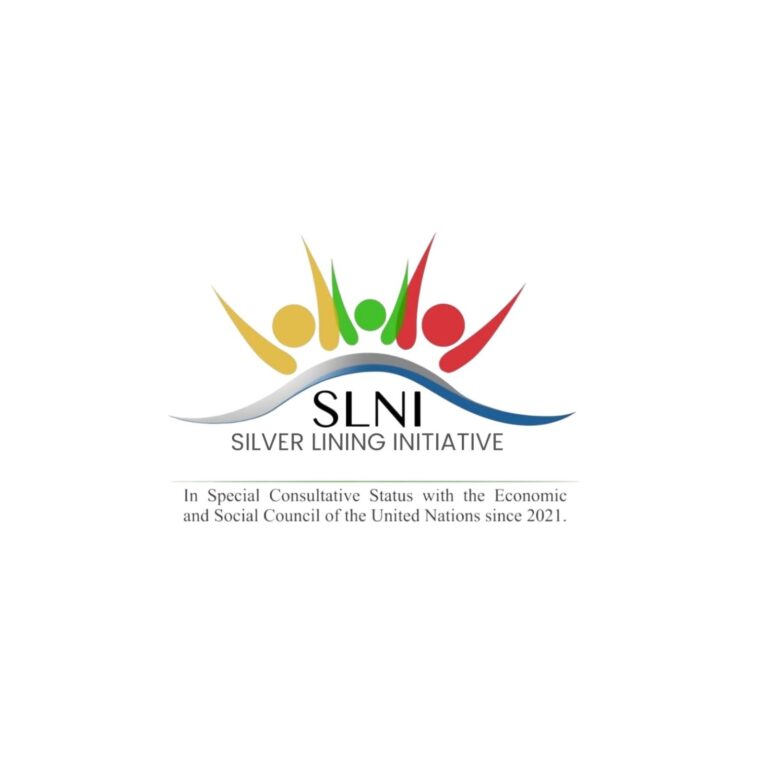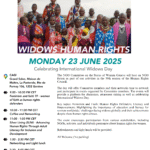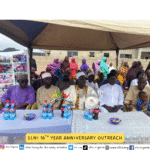
Advancing Human Rights Through Adult Literacy for Inclusion and Development
Introduction
On 23 June 2025, the Silver Lining Initiative (SLNI) hosted a session under the CSW Geneva widow’s day during the 59th Session of the United Nations Human Rights Council (HRC59). The event, titled “Advancing Human Rights Through Adult Literacy for Inclusion and Development,” marked International Widows Day and focused on the role of adult literacy in promoting inclusion, human dignity, and empowerment, particularly for widows.
Objectives
Objectives
- To highlight adult literacy as a pathway to human rights, dignity, and inclusion
- To raise awareness of the specific challenges faced by widows globally
- To promote community-based and women-led literacy initiatives
- To support the integration of literacy into broader human rights and development agendas
Summary of Proceedings
The session began with an opening statement from Ms. Hauwa Abbas, who emphasized the transformative role of literacy in enabling individuals, especially widows, to participate meaningfully in society. She called on stakeholders to ensure that literacy is seen as a right, not a privilege.
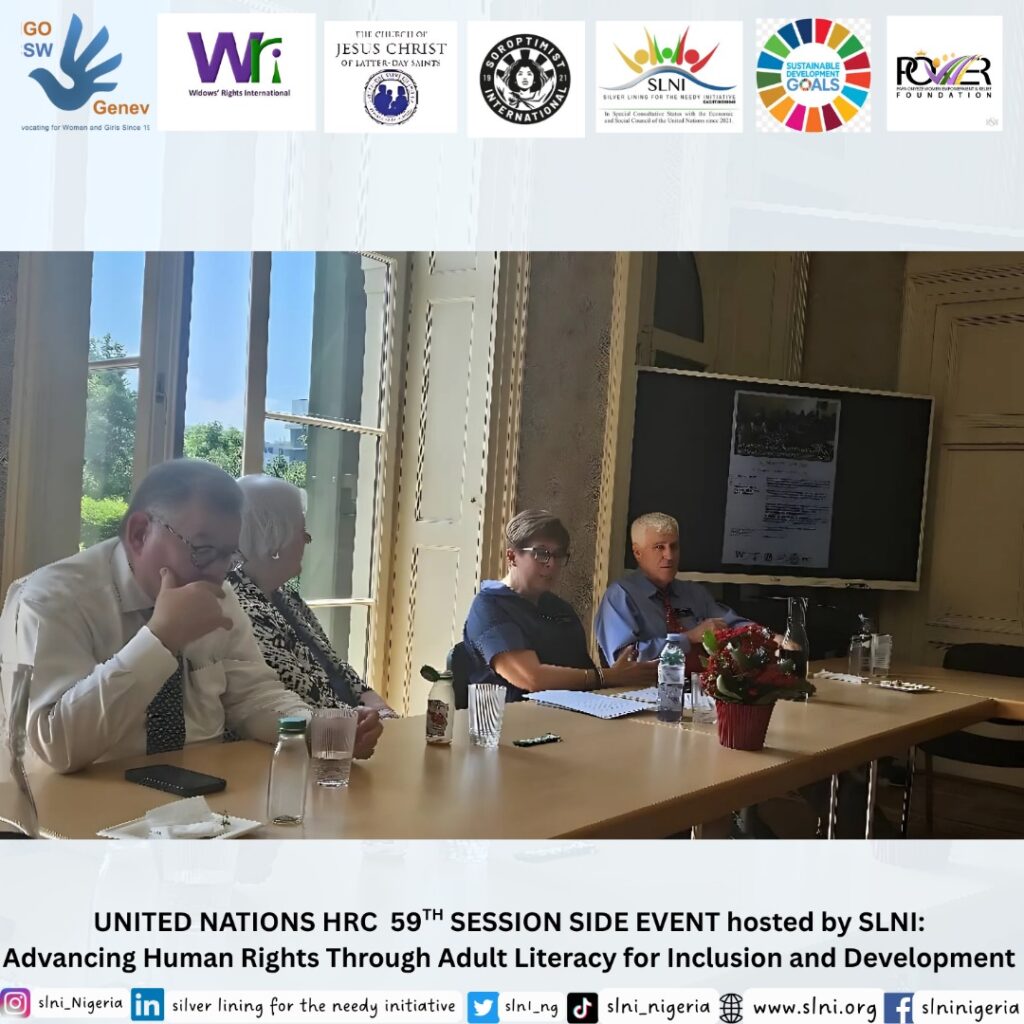
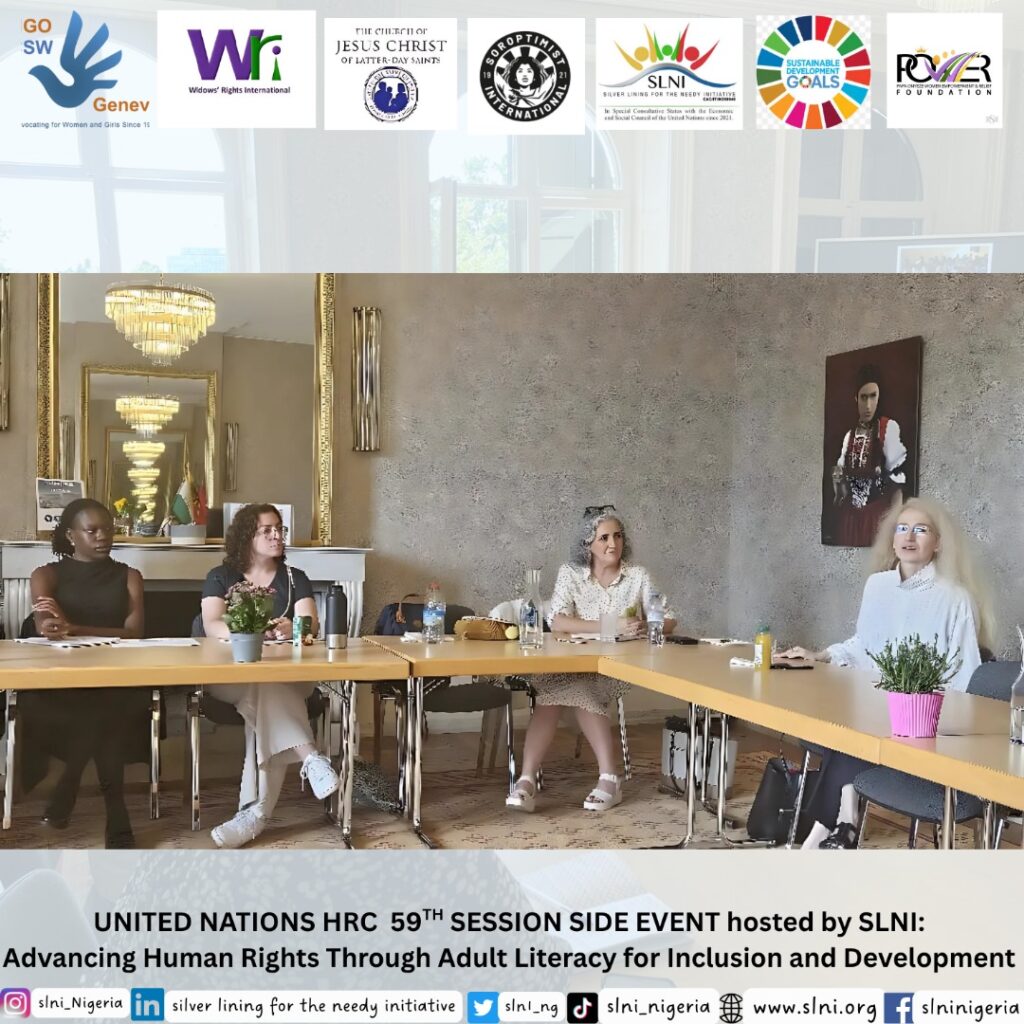
A cross section of participant during the event
Panelists from various organizations and countries contributed to the discussion, including educators, civil society representatives, religious leaders, and humanitarian workers. Speakers explored the intersection of literacy with gender equity, economic empowerment, legal access, and public health.
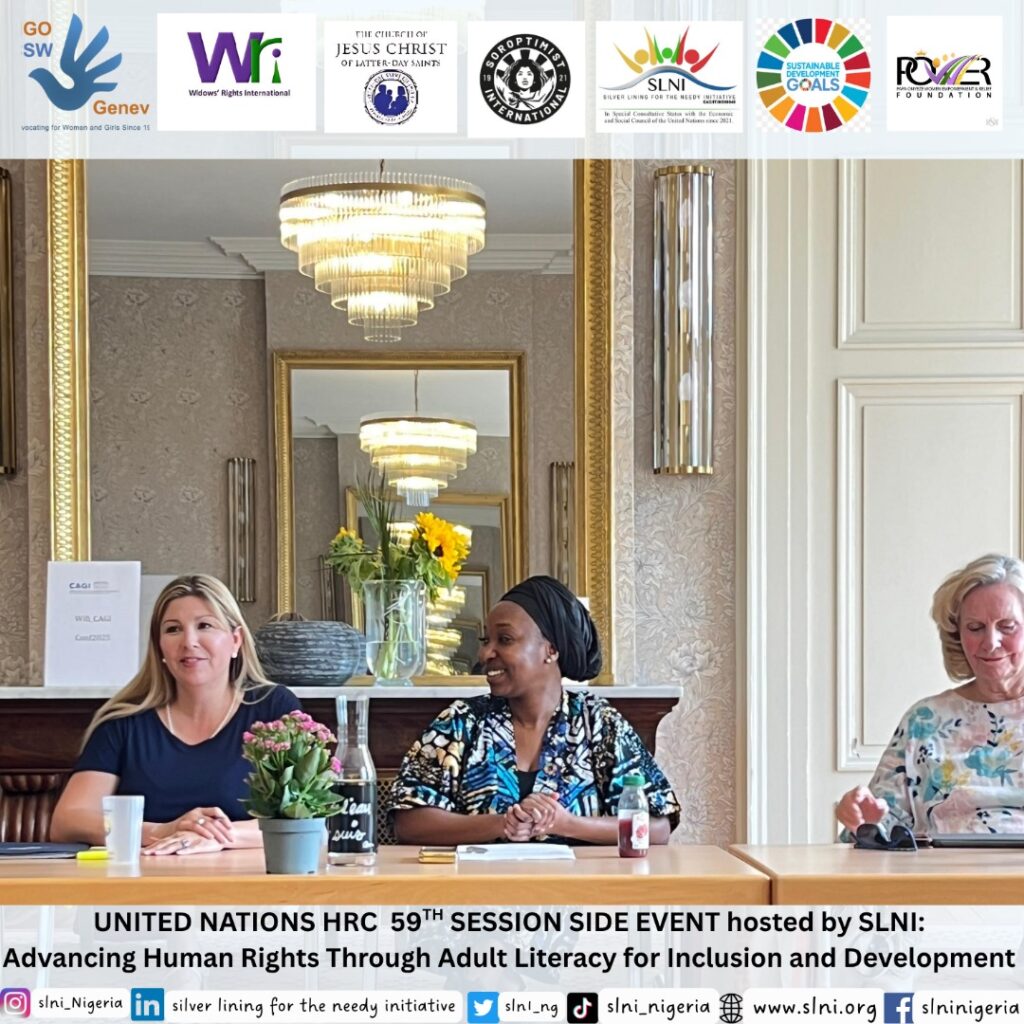
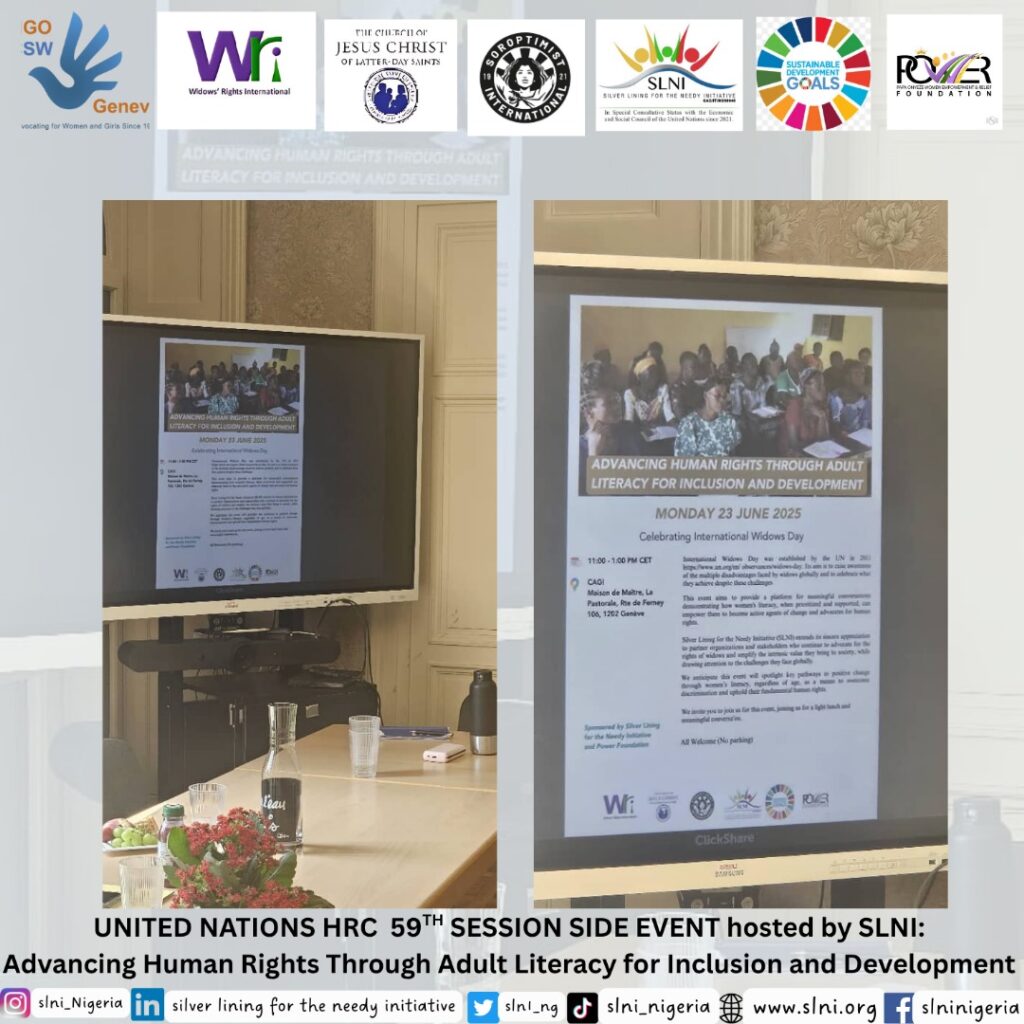
A cross section of participant during the event
The event was participatory and inclusive, with attendees actively contributing through reflections and personal stories. A recurring theme was that literacy enables women to break cycles of poverty and invisibility.
Key Quotes
“Literacy is the key to understanding your rights.”
“If you build a woman, you build a generation.”
“Literacy is dignity. It allows you to be heard and to contribute.”
“Lack of literacy is like darkness in a room with no direction.”
Key Outcomes and Recommendations
- Recognition of adult literacy as a human right: Participants affirmed that adult literacy must be integrated into human rights frameworks.
- Support for women-led literacy programs: Emphasis on community-rooted and gender-sensitive approaches.
- Creation of inclusive, safe learning spaces: These are essential for widows and marginalized women.
- Partnerships for action: The session called for collaboration between governments, civil society, and international partners.
Conclusion
The event reinforced the message that adult literacy is central to the empowerment of women and must be prioritized in national and global human rights strategies. SLNI extends appreciation to all who contributed to this successful session.
